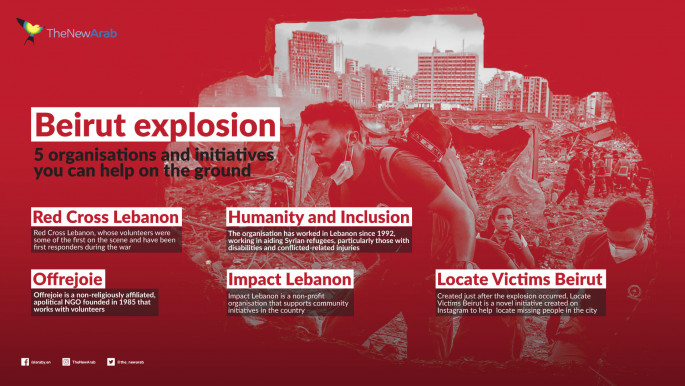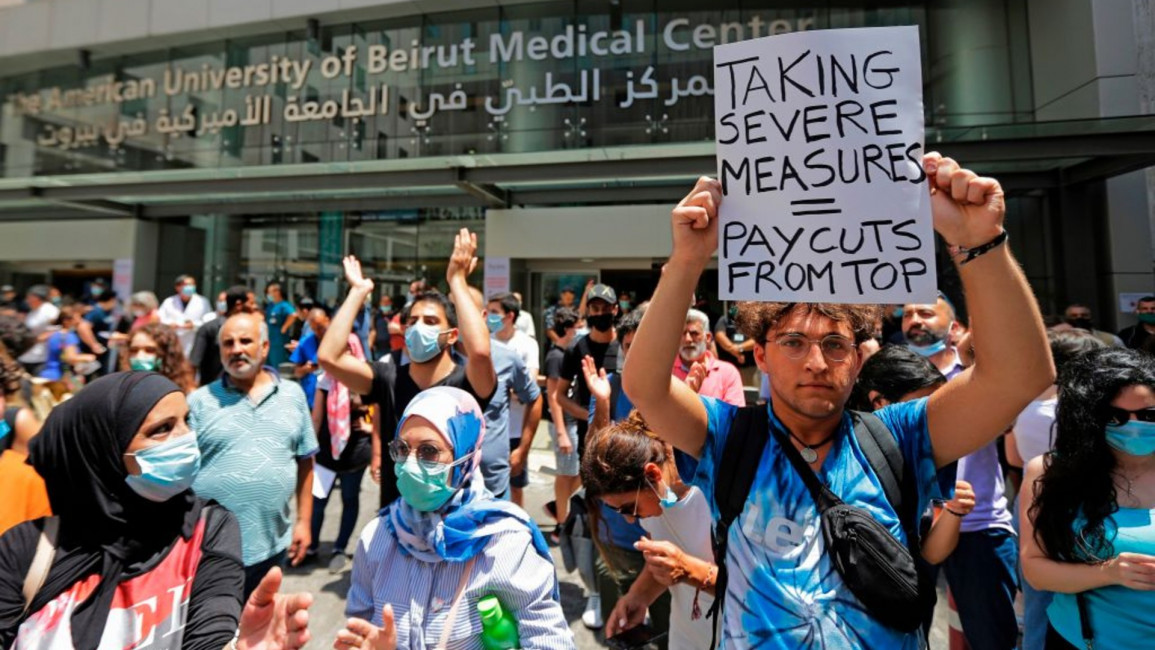Lebanese army indiscriminately attacked unarmed protesters: Amnesty International
Lebanon’s army and security forces, as well as undercover forces in civilian clothes, shot at unarmed crowds during protests in Beirut that took place in the days following the recent explosions in Beirut, an Amnesty International investigation has found.
The massive Beirut blast on Tuesday, which was felt across the county and as far as the island of Cyprus, was recorded by the sensors of the American Institute of Geophysics (USGS) as having the power of a magnitude 3.3 earthquake.
It was triggered by a fire in a port warehouse, where a huge shipment of hazardous ammonium nitrate, a chemical that can be used as a fertiliser or as an explosive, had languished for years, according to authorities.
The huge blast also wounded at least 6,000 people and displaced more than 300,000 from their destroyed or damaged homes.
The revelation that the chemicals had languished for years like a ticking time-bomb in the heart of the capital has served as shocking proof to many Lebanese of the rot at the core of the state apparatus.
The blast triggered protests across the country, which security apparatus have reacted violently.
|
||
“With their lives in ruins, and still reeling from the physical and emotional trauma of the explosion, thousands of people took to the streets in Lebanon to call for justice. Instead, state forces shot at and tear-gassed them,” said Lynn Maalouf, Amnesty International’s Middle East Research Director.
“Instead of meeting its basic responsibilities towards the thousands of people left homeless and impacted by the blasts, the state seems to be on the attack against its population.
“Lebanese security forces caused several serious injuries, and further eroded the trust of a population already struggling with multiple crises. All those responsible for this outrageous violent conduct must be thoroughly investigated and held to account for their criminal actions.”
Amnesty interviewed six demonstrators who were in downtown Beirut on 8 August when the crackdown intensified. They all reported seeing security and military apparatus shooting rubber bullets and tear gas canisters directly into the crowd at chest level and from close range, indicating that they intended to harm civilians.
Protesters also reported being injured from small rubber pellets fired from an unidentified attackers.
Attacking medics
Doctors reported at least six cases of eye injuries. All of those harmed were between the ages of 18 and 21, and had been hit in the eyes with pellets. The medical team at the Department of Ophthalmology at the American University of Beirut resorted to removing the eye of one young man completely, while others lost their sight to varying degrees.
One doctor told Amnesty International: “We did six open eye operations on Tuesday following to the explosion, and six open eye operations on Saturday following the protests. The first six were injured by glass, the second six by pellets.”
Amjad* was shot in the neck with a rubber bullet, according to doctors. The attackers hit his vein, which led him to suffering significant blood loss before being taken to Rizk Hospital.
He said: “We were in Riad Al-Solh Street. I saw the riot police and the army shooting directly at the protesters from a close range. They were around 12 meters away from us, and then I felt blood pouring from my neck. I pressed on the wound with my fingers and walked in the direction of the Red Cross to get help. I then fainted and the people there helped me.”
Doctors were also assaulted whilst tending to victims of state violence on the scene.
Lebanese doctor Elie Saliba told Amnesty International that he was assaulted three times on 8 August while in Martyr’s Square: he was hit by a pump action pellet in the shoulder, then by a spray of pellets on the head and face, and then beaten by army officers.
After being hit by the pellets, he said he approached an army officer to ask why they were shooting unarmed civilians. The army officer told him, “You elected this regime”, to which Saliba replied: “I never elected any of the leaders of the corrupt regime.” He was then attacked.
Dr Saliba said: “When he heard ‘corrupt’, he pushed me violently. I turned my back to leave. A soldier hit my back with his ranger, and I fell on the ground. Three officers started kicking my body. I saw my wife running to me, I feared they would hit her, so I found some strength to stand up and run away, hold her and leave with her. They hit me because I said ‘corrupt’. I didn’t offend him, the army or insult anyone.”
Amnesty International are calling on the Beirut government to stop state-sponsored violence against protesters and for an international investigation against the assaults.
Follow us on Facebook, Twitter and Instagram to stay connected


![President Pezeshkian has denounced Israel's attacks on Lebanon [Getty]](/sites/default/files/styles/image_684x385/public/2173482924.jpeg?h=a5f2f23a&itok=q3evVtko)



 Follow the Middle East's top stories in English at The New Arab on Google News
Follow the Middle East's top stories in English at The New Arab on Google News


